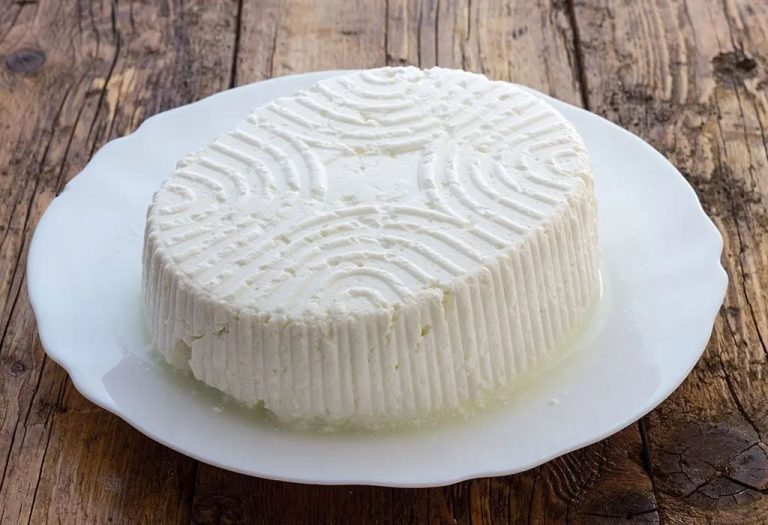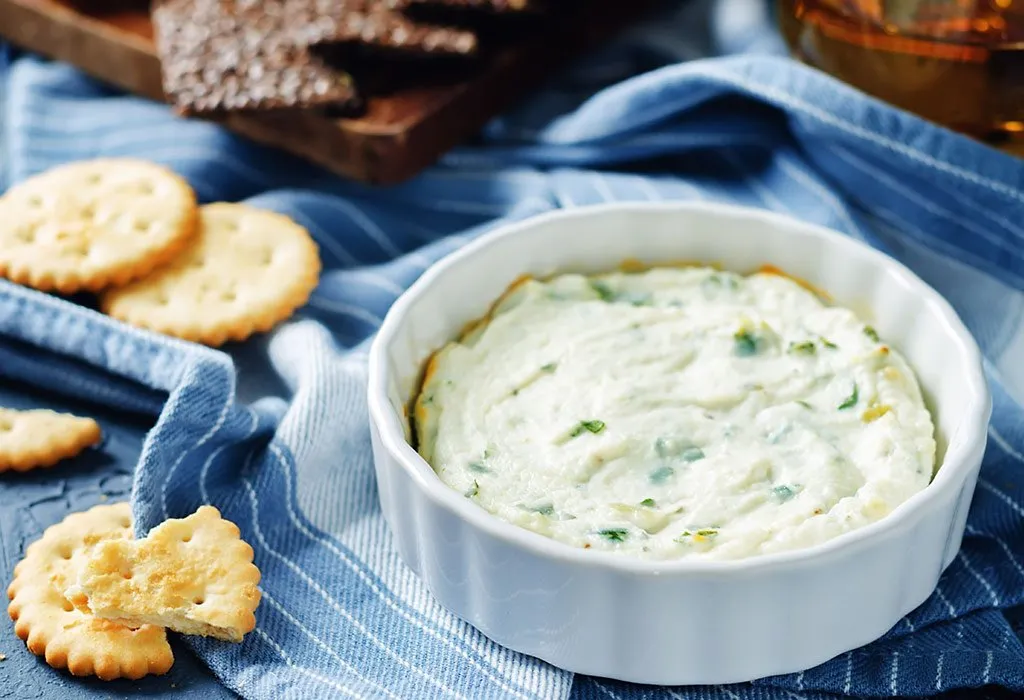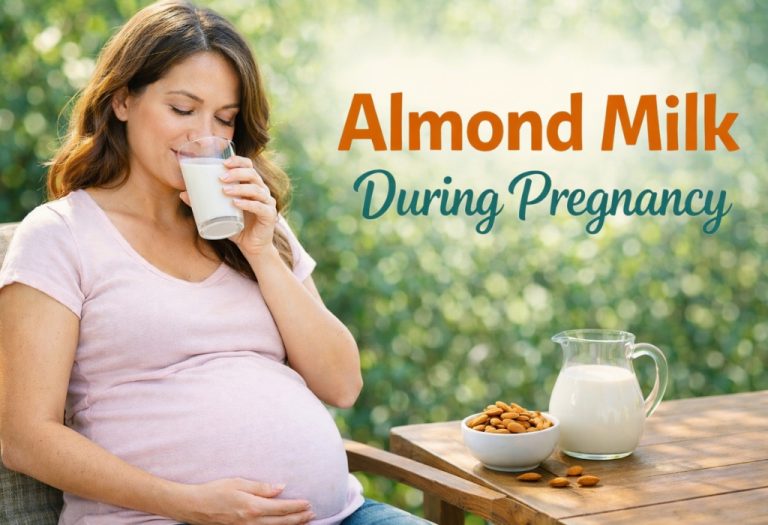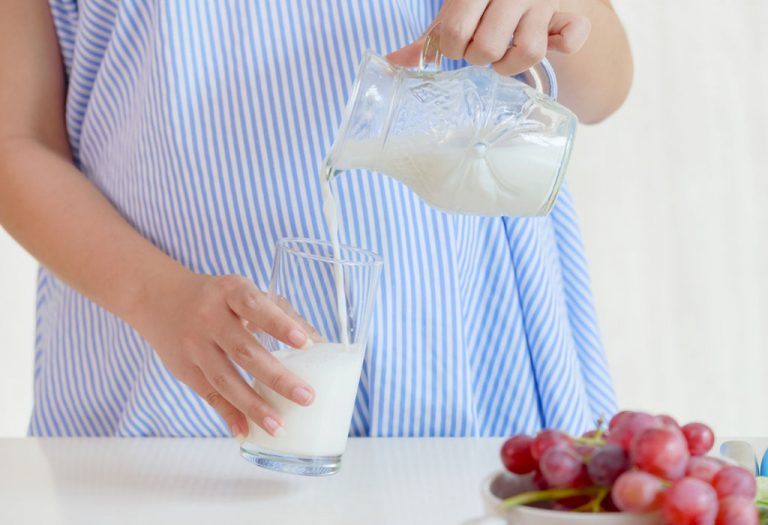Eating Ricotta Cheese during Pregnancy – Is It Safe?
We all are fond of Italian cuisine and the variety of cheese produced there. If you are pregnant, you will have this question in mind: whether eating cheese or, specifically, ricotta cheese is safe during pregnancy or not? The answer is yes. Ricotta cheese, known for its creamy texture and mild flavour, is a staple in many dishes ranging from lasagna to desserts. However, the safety of consuming ricotta cheese in pregnancy hinges on factors such as pasteurisation and preparation methods. Understanding these aspects is essential for expectant mothers to make informed dietary decisions and enjoy their favourite foods without compromising their health or their baby’s.
Read on to learn the nutritional benefits of ricotta cheese and recommendations for safely including this delightful cheese in your pregnancy diet.
What Is Ricotta Cheese?
Ricotta cheese, a product originating from Italy, is made from the milk whey of various animals, including sheep, goats, cows, or Italian water buffalo. The process of making ricotta cheese is similar to that of regular cheese. After the cheese-making process, the remaining whey milk is transformed into ricotta cheese through coagulation.
Can Pregnant Women Eat Ricotta Cheese?
So, here’s good news for all cheese lovers! Yes, it is safe to eat certain varieties of cheeses during pregnancy. Cheese is considered a healthy and nutritious element of our daily diet, but you must be very careful when you are pregnant. While certain cheeses are safe during pregnancy, others carry the threat of listeria, a bacteria that can harm your baby (1). It is better to avoid tender, ripened, and blue-veined types of cheese during pregnancy as it might contain harmful bacteria. Some cheeses like ricotta and stilton are safe to consume during pregnancy. Consuming cooked ricotta when pregnant may reduce the risk of bacteria entering your body. However, talking to your doctor before including it in your diet is highly recommended.
Benefits of Ricotta Cheese for Pregnant Women
Ricotta cheese provides a range of benefits for pregnant women, making it a nutritious addition to their diet. Its rich content of protein, calcium, and essential vitamins supports both maternal health and fetal development (5). The benefits of consuming ricotta while pregnant include:
1. Protein
Proteins help build lean muscles and keep them healthy. Ricotta is considered a rich source of protein. Consuming ricotta cheese during pregnancy helps form new cells and tissues and also releases certain essential hormones.
2. Calcium
Calcium is essential for strong and healthy bones, so adequate calcium intake during pregnancy is vital. Consuming ricotta cheese during pregnancy will help maintain the health of your bones and develop the bones of your growing baby (2).
3. Selenium
Ricotta cheese is rich in selenium, which helps increase progesterone levels and decrease TPO antibody levels during pregnancy.
4. Vitamins
Consuming half a cup of ricotta cheese will fulfil approximately 11% of vitamin A, 14% of Riboflavin, and 7% of vitamin B12 in the daily recommended intake. These vitamins have their own benefits during pregnancy; Riboflavin helps maintain healthy eyes and skin, vitamin B12 helps prevent birth defects, and vitamin A boosts the immunity of the growing embryo.
5. Carbohydrates and Energy Sources
Skimmed milk ricotta cheese or fat-free ricotta is an excellent source of carbohydrates. Carbohydrates are essential during pregnancy and are considered the primary energy source in the diet. It plays a unique role in the overall development and support of the growing baby.
6. Omega Fatty Acids
Ricotta cheese is a rich source of both omega-3 and omega-6 fatty acids. Omega fatty acids are known to positively affect pregnancy, especially the visual and cognitive development of the baby.
Drawbacks of Consuming Ricotta While Pregnant
While ricotta cheese can be a tasty and nutritious option for pregnant women, it has its share of drawbacks:
- Ricotta cheese produced from whole milk is high in fat, which can hinder a baby’s potential brain development. So, avoid ricotta cheese made from whole milk.
- Ricotta cheese has a high sodium content. If you are advised to be on a low-salt diet, then Ricotta cheese is better avoided or taken in very tiny amounts during pregnancy. If you want to eat ricotta cheese, eat it in less quantity. Excessive salt during pregnancy can lead to water retention and bloating.
Ricotta Cheese Recipes to Try During Pregnancy
You can enjoy these delicious recipes with ricotta once you have confirmed with your doctor that ricotta cheese should be included in your diet. If any of the ingredients used here are not part of your diet, then feel free to substitute them.
1. Ricotta and Yoghurt Parfait
This delicious recipe is perfect for breakfast or a mid-meal snack. This lip-smacking parfait is loaded with the goodness of fibre, protein, magnesium, vitamin E, antioxidants, and vitamin C, as well as all the benefits of ricotta. Fibre aids in digestion, and the vitamins keep you healthy throughout your pregnancy (3).
Ingredients
- 3/4th cup of low-fat Greek yoghurt (any flavour)
- 1/4th cup of skimmed milk ricotta cheese
- ½ cup lemon zest
- 1/4th cup raspberries
- 1 tablespoon chopped almonds
- 1 teaspoon chia seeds
How to Cook
- Combine yoghurt, ricotta cheese, and lemon zest.
- Top it with raspberries, almonds, and chia seeds. And it’s ready to serve!
2. Lemon-Thyme Flavoured Whipped Ricotta
A rich and creamy appetiser can be served with whole-wheat crackers, veggies or just as a dip. It contains thyme, which possesses medicinal and anti-microbial properties, and chives, again rich in vitamins, minerals and antioxidants (7).
Ingredients
- 30 g of skimmed ricotta
- 2 tablespoons chopped fresh thyme
- 2 teaspoons olive oil
- 2 teaspoons minced shallot or chives
- 2 teaspoons lemon zest
- 1/4th cup lemon juice
- 1 teaspoon fresh pepper
- ½ teaspoon salt
How to Cook
- Blend the mentioned ingredients (except olive oil) and puree them until smooth.
- Once ready, transfer it into a serving bowl and drizzle with olive oil and thyme. And you are good to go!
3. Ricotta and Tomato Bruschetta
This simple appetiser or snack is bursting with flavour and nutrients. Tomatoes provide vitamins A and C, while ricotta offers protein and calcium (4). It’s a satisfying option for any time of day.
Ingredients
- Baguette or crusty bread, sliced
- 1 cup ricotta cheese
- 2 ripe tomatoes, diced
- 2 cloves garlic, minced
- Fresh basil leaves, chopped
- Olive oil
- Salt and pepper to taste
How to Cook
- Preheat your oven to 375°F (190°C).
- Place the sliced baguette or bread on a baking sheet and drizzle with olive oil. Toast in the oven until lightly golden, about 5-7 minutes.
- Mix ricotta cheese, diced tomatoes, minced garlic, chopped basil, salt, and pepper in a bowl.
- Spread the ricotta mixture onto the toasted bread slices.
- Drizzle with more olive oil and garnish with additional basil leaves, if desired.
- Serve immediately and enjoy!
4. Ricotta and Berry Stuffed French Toast
Upgrade your breakfast with this decadent stuffed French toast filled with creamy ricotta cheese and sweet berries. It’s a treat for your taste buds and a nutritious way to start your day.
Ingredients
- 4 slices of bread (such as brioche or challah)
- 1/2 cup ricotta cheese
- 1/2 cup mixed berries (such as strawberries, blueberries, and raspberries), sliced
- 2 eggs
- 1/4 cup milk
- 1 teaspoon vanilla extract
- Butter for cooking
- Maple syrup for serving
How to Cook
- Mix ricotta cheese and sliced berries in a bowl until well combined.
- Spread the ricotta and berry mixture evenly onto two slices of bread, then top with the remaining two slices to form sandwiches.
- In another bowl, whisk together eggs, milk, and vanilla extract.
- Dip each stuffed sandwich into the egg mixture, ensuring both sides are coated.
- Heat butter in a non-stick skillet over medium heat.
- Cook the stuffed French toast sandwiches until golden brown on each side, about 3-4 minutes per side.
- Serve warm with maple syrup drizzled on top.
5. Ricotta and Herb Dip
This flavourful dip is a versatile addition to any table. With a creamy base of ricotta cheese and a blend of herbs, it’s quick to prepare and pairs well with a variety of accompaniments, from fresh vegetables to crispy crackers.
Ingredients
- 1 cup ricotta cheese
- 1 tablespoon fresh chopped parsley
- 1 tablespoon fresh chopped chives
- 1 clove garlic, minced
- 1 tablespoon lemon juice
- Salt and pepper to taste
- Olive oil for drizzling
- Optional: red pepper flakes for a kick
How to Cook
- Combine ricotta cheese, chopped parsley, chopped chives, minced garlic, and lemon juice in a bowl.
- Season with salt and pepper to taste.
- Stir until all ingredients are well combined.
- Transfer the mixture to a serving bowl.
- Drizzle olive oil over the top of the dip.
- Optionally, sprinkle with red pepper flakes for added heat.
- Serve with sliced vegetables, crackers, or breadsticks for dipping.
- Enjoy your flavourful ricotta and herb dip!
When to Consult a Doctor?
While ricotta cheese can be a tasty addition to your pregnancy diet, it’s crucial to be cautious about food safety, especially regarding pregnancy and ricotta cheese. You should consult your doctor promptly if you experience any concerning symptoms after consuming ricotta or other food during pregnancy. Symptoms such as nausea, vomiting, diarrhoea, abdominal pain, or any signs of foodborne illness should not be ignored (6).
Ricotta and pregnancy can go hand in hand, offering a delicious and nutritious option for expectant mothers when consumed safely. Always consult your doctor before altering or including anything new to your diet. Do try out these yummy recipes and let us know how they turn out.
References/Resources:
1. Foods to avoid in pregnancy; NHS; https://www.nhs.uk/pregnancy/keeping-well/foods-to-avoid/
2. Ricotta; Encyclopedia Britannica; https://www.britannica.com/topic/ricotta
3. Hajhoseini. L; Importance of optimal fiber consumption during pregnancy; International Journal of Women’s Health and Reproduction Sciences; https://www.ijwhr.net/pdf/pdf_IJWHR_13.pdf
4. Collins. E. J, Bowyer. C, Tsouza. A, Chopra. M; Tomatoes: An Extensive Review of the Associated Health Impacts of Tomatoes and Factors That Can Affect Their Cultivation; PubMed Central; https://www.ncbi.nlm.nih.gov/pmc/articles/PMC8869745/
5. Cheese, ricotta, whole milk; U.S. DEPARTMENT OF AGRICULTURE; https://fdc.nal.usda.gov/fdc-app.html#/food-details/170851/nutrients
6. What Is Foodborne Illness? Food Safety for Moms to Be; U.S. Food and Drug Administration; https://www.fda.gov/food/people-risk-foodborne-illness/what-foodborne-illness-food-safety-moms-be
7. Hammoudi. H. D, Krayem. M, Khaled. S, Younes. S; A Focused Insight into Thyme: Biological, Chemical, and Therapeutic Properties of an Indigenous Mediterranean Herb; PubMed Central; https://www.ncbi.nlm.nih.gov/pmc/articles/PMC9147557/
Also Read:
Eating Butter in Pregnancy
Eating Pizza during Pregnancy
Can You Eat Blue Cheese while Pregnant?
Is It Safe To Eat Goat Cheese when Pregnant?
Was This Article Helpful?
Parenting is a huge responsibility, for you as a caregiver, but also for us as a parenting content platform. We understand that and take our responsibility of creating credible content seriously. FirstCry Parenting articles are written and published only after extensive research using factually sound references to deliver quality content that is accurate, validated by experts, and completely reliable. To understand how we go about creating content that is credible, read our editorial policy here.




































